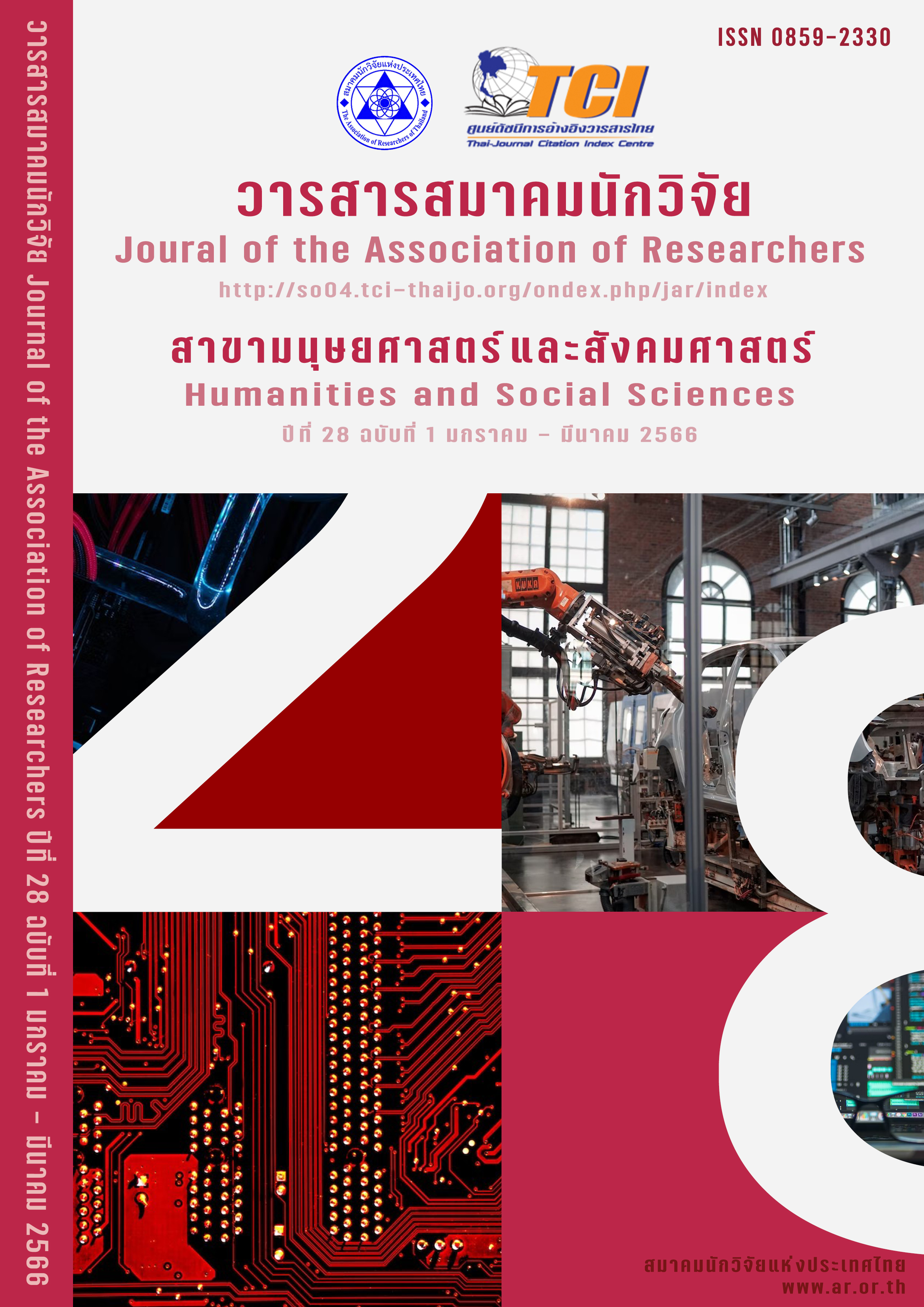Investigation on awareness, attitude and knowledge of frontline employees in oil and gas pipeline supply chain
Main Article Content
Abstract
This research article wear objective 1)To understand the awareness, attitude and knowledge of front-line employees in oil and gas pipeline transportation 2)To suggest the ides to enhance front-line employees in term of their recognition and attention, front-line employees in oil and gas pipeline transportation, 105 by questionnaire. Results It was found that employees with different gender, age, length of service and educational level had great differences in their work consciousness, attitude and knowledge. Therefore, for front-line employees of oil and gas pipeline transportation in different situations, we should formulate more targeted awareness, attitude and knowledge optimization methods, so as to improve their overall working ability. to design a more perfect evaluation index system. Comprehensively evaluate employees' work awareness, attitude and knowledge, and according to the evaluation scores, understand the level of employees' good performance and poor performance. Then formulate more targeted improvement measures. This employee principle and method, which varies from person to person, actually adheres to the people-oriented development concept in modern enterprise management. employees with different gender, age, length of service and educational level have differences in their work consciousness, attitude and knowledge level. As far as work awareness and attitude indicators are concerned, the older the employees are, the longer the length of service, and the lower the educational level, the higher the average scores are. Professional knowledge, the higher the degree, the younger the age and the shorter the length of service, the better the employees can master; And the average score of skill level is opposite to that of professional theoretical knowledge. Due to the remarkable individual characteristics of employees, we must strictly follow the principle of individuality when making plans to improve employees' work consciousness, attitude and knowledge and skills.
Article Details

This work is licensed under a Creative Commons Attribution-NonCommercial-NoDerivatives 4.0 International License.
บทความที่ปรากฏในวารสารนี้ เป็นความรับผิดชอบของผู้เขียน ซึ่งสมาคมนักวิจัยไม่จำเป็นต้องเห็นด้วยเสมอไป การนำเสนอผลงานวิจัยและบทความในวารสารนี้ไปเผยแพร่สามารถกระทำได้ โดยระบุแหล่งอ้างอิงจาก "วารสารสมาคมนักวิจัย"
References
Chupradist, W. (2017). The causal relationship of organizational climate, organizational citizenship behavior, employee engagement, and organizational effectiveness of service business organizations. Journal of Business Administration The Association of Private Education Institutions of Thailand, 6(2), 31-47.
Cochran, W. G. (1977). Sampling techniques. 3 rd Ed. New York: John Wiley & Sons.
Duan Fangyan. Analysis of the relationship between work stress and work attitude of employees [J]. Psychologist Monthly, 2012, 4(005):505-506.
Panyindee, J. (2022). The Causal Relationship Model Between Strategic Human Resource Management and Organizational Resilience on Organizational Performance in The Electronic Industry. Journal of Business Administration The Association of Private Higher Education Institutions of Thailand, 11(1), 55-69.
Pen farming. (2020). Improve employee engagement. Glory, 2020(11):2.Shirley. The relationship between employees' job autonomy and job burnout [D]. Tianjin Normal University, 2020: 16-17.
Supatn, N. (2016). Roles of Travel Incentives on Employee Motivation and Performance. Journal of Business Administration The Association of Private Higher Education Institutions of Thailand, 5(1), 55-72.
Wang Huan. (2014). Thoughts on the stability of employees in oil and gas pipeline enterprises [J]. New West (Theoretical Edition), 7 (9): 19-21.
Wang Zhe. (2010). Analysis of human resource development and management of oil and gas pipeline enterprises [J]. International Petroleum Economics, 18(5):64-67.
Wu Tingting. (2020). Research and design of enterprise employees' professional ability evaluation system [J]. Digital Users, 2(3):3.
Xu Weiliang. (2018). Application of employee incentive system in oil and gas pipeline operation enterprises [J]. China Chemical Trade, 010(022):112.
Yang Donghong, Hao Guang, Luo Hongyun (2021). Analysis of influencing factors of employees' knowledge satisfaction [J]. 16-1:45-49.

